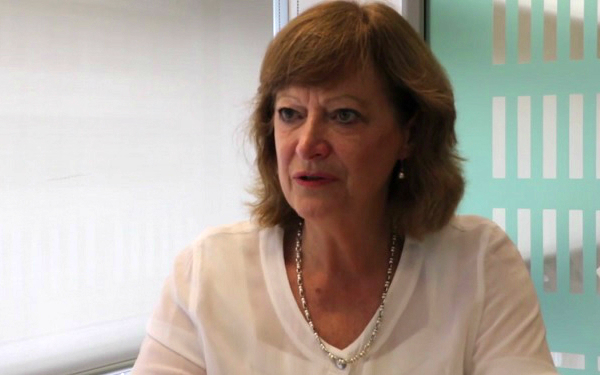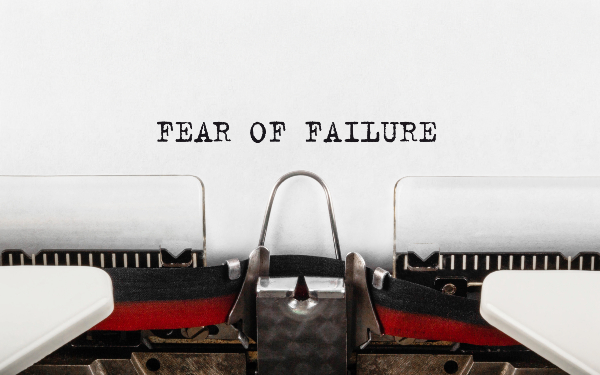
 Community Care’s Choose Social Work campaign aims to counteract the negative media coverage of the profession, and show the brilliant work social workers do every day.
Community Care’s Choose Social Work campaign aims to counteract the negative media coverage of the profession, and show the brilliant work social workers do every day.
Read about why we’re launching this campaign, and the five steps you can take to support it.
If anyone knows the impact that negative media coverage has on social workers, that person is Sharon Shoesmith. Director of education and children’s services at Haringey Council when the Peter Connelly case (known at the time as Baby P) hit the headlines of every news outlet in 2008, Shoesmith was removed from her post during a live TV press conference by the then secretary of state for children, Ed Balls. Haringey Council swiftly sacked her.
Balls was reacting to The Sun’s campaign calling for Shoesmith and four social workers to be sacked, claiming they were responsible for the 17-month-old’s death. Peter’s mother’s boyfriend (Steven Barker) and his brother (Jason Owen) were convicted of “causing or allowing” Peter’s death. His mother, Tracey Connelly, had already pleaded guilty to the same charge.
Five years later, Rebekah Brooks, The Sun’s editor at the time, admitted that the paper’s pursuit of Shoesmith had been “cruel, harsh and over the top”.
So, the irony is not lost on either of us that 15 years later, on the morning we have arranged to talk, the headline news is the release of court papers concerning the case of 10-month-old Finley Boden who was killed by his parents on Christmas Day 2020.

Finley Boden (photo: Derbyshire Constabulary)
After Finley was born, social workers from Derbyshire County Council removed him from his parents because they believed he was at risk of significant harm: the house was squalid, there was a risk of domestic abuse and both parents smoked medium to high levels of cannabis. When the story of his death broke earlier this year, headlines blamed social workers for returning Finley to his parents. But readers who went further than the headline learnt that, in fact, a court decision sent Finley home earlier than social workers had recommended.
The released court papers elaborated further: the local authority requested a four-month transition plan, the Cafcass guardian suggested this time should be halved despite the local authority arguing this would be too soon. Two magistrates approved the shortened transition time.
Why are social workers blamed?
It seems nothing has changed. In Peter Connelly’s case, for example, both the Metropolitan Police and Great Ormond Street Hospital were criticised in the subsequent serious case review but received little media attention at the time. So, why does Shoesmith think social workers are more often than not the focus of any blame, even when other professionals or agencies have been involved?
“The reasons are complex and embedded over almost 50 years,” she says. “Part of the reason is society’s inability to face up to the existence of such shocking harm to children at the hands of known adults. Over time, social workers have become ‘containers’ for the emotion of the public – they are blamed. It has been hard for them to speak up in their own defence – hard to find a way to change the narrative that they are to blame because it has become so deeply embedded.
“I would love to see social workers work as one strong professional body, a bit like the BMA [the British Medical Association that supports UK doctors and medical students]. BASW [the British Association of Social Workers] has made enormous progress in recent years and I hope it will continue to grow.”
But, she says, “where is the person with the gravitas and respect on the national stage saying ‘this is not the case’ [when a negative story is in the news]?”.
“BASW is well-known and respected within social work, but the next step is to build up its presence in the media, on TV programmes like Newsnight and Channel 4 News, to begin to change the narrative and, at least, argue for social workers to have a fair hearing.”
As well as urging social workers to join BASW, Shoesmith’s other hard-learnt message is for them to join their union, stating “it’s the best money they will spend”.
Which of the following are you a member of? (more than one answer allowed)
- UNISON (35%, 112 Votes)
- BASW (30%, 94 Votes)
- Social Workers Union (13%, 40 Votes)
- I'm not a member of a union or professional body (13%, 40 Votes)
- Another union (5%, 16 Votes)
- Another professional body (4%, 13 Votes)
- Northern Ireland Public Service Alliance (1%, 2 Votes)
Total Voters: 250
“My union put in £100,000 so I could go to the High Court; the social workers [sacked over Peter’s death] did not have membership to draw upon.”
Unfair dismissal
Shoesmith used the money to take a case for unfair dismissal against Balls and Haringey Council which ended up in the Court of Appeal in 2011.
There was a stark reasoning behind her decision to open herself up to the potential for more humiliation by going to court: “Children have been my life and continue to be my life, and for someone to accuse me of being responsible for the brutal murder of a child, that was something that I was never going to stay alive for. I had to finish myself off or act and go to court. It was one route or the other. Luckily, I went the court route.”
The court ruled that she had been scapegoated and unlawfully removed from her post.
After leaving Haringey, Shoesmith completed a PhD in 2015 in psychosocial studies and a year later her book, Learning from Baby P: The politics of blame, fear and denial, was published. She has since worked as a researcher, writer and public speaker in education, social care and public perception, as well as a visiting lecturer for student social workers in several universities.
Fighting inaccuracies about social work has become a mission: when the BBC’s news website published the incorrect headline (mirrored across other media) stating that social workers decided to return Finley Boden to his parents, she contacted them to point out the error and it was swiftly changed. She doesn’t take the credit for this, saying she would not have been the only person to complain.
We just have to keep challenging the government and media [when they are wrong] and get out there and hit back.”
And whenever social workers are portrayed inaccurately in a TV drama, the production team should expect her to pull them up on it: “We have to try to get this professional pride back.”
She writes cards offering words of support to social workers and directors who come under fire. And at any one time she is supporting at least three people who have been blamed for harm to children, contacting her via LinkedIn or her publisher.
Changing perceptions
The mindset of much of the media, politicians and public appears to be that if social workers would ‘just do their job properly’, no more children would be killed by their parents or step-parents.
Such a utopian stance belies the harsh reality that no one person, profession or agency will ever be able to prevent every child death, particularly when the perpetrators are parents, the very people we expect to protect children.
And with more families presenting with increasingly complex needs, the barometer that social workers use to measure whether to remove a child from his or her parents or try to work with them to keep the child safely at home shifts.
So, can social workers change this perception that they are solely responsible for safeguarding children or alter the negative attitude towards them when both sentiments seem so ingrained?
As far as Shoesmith is concerned, if social workers are going to achieve this then they need to find ways to speak out. She estimates it could take up to a decade to turn the media and public view around – if the profession is prepared to take this on.
Yet she firmly believes that social workers can achieve this if they put their minds to it and, unexpectedly, cites Queen Camilla as an analogy: someone who transformed herself from vilified figure after the death of Diana, Princess of Wales, to being crowned queen.

Photo: Marek/Fotolia
It will mean social workers building their presence. This can start small: be proud to talk about what you do if you are asked when out for a drink on a Friday night; go to the local paper, meet the editor and offer to do a day in the life column; have a stand at local fairs and events – as the fire service and others often do.
Any push to change attitudes must flow from top to bottom and vice versa. When she found herself in the eye of the media storm, Shoesmith’s inbox was full of emails from other social services directors saying it could have been any of them. “But, they never went to the media to say that,” she says.
“Directors [in these cases] should go to the media and tell their side of the story. But they are too reluctant to do it, everybody hides away and thinks that it won’t happen to them and just watch others go through it.
“Each of them need to be protecting the profession.”
Ultimately, social workers have to be careful not to get in the blame game themselves, she says. “The notion of human error and how we think about that, and think the unthinkable about someone [killing a child], it is a hard thing for social workers to do.
“But what I say to all social workers I speak to is, ‘whatever errors they [a social worker working with a child who dies] may have made, you made the same errors last month or last week but you were lucky [the child did not die]’.”
A glimpse into the future
A teacher by background, Shoesmith was heavily involved in the movement to bring children with special educational needs into mainstream education in the 1980s. Consequently, she had spent years working closely with social workers, respected the profession and felt very positive about bringing education and social services under one umbrella for children when they came under her remit at Haringey.
However, an incident a few years earlier in 2000, when she was deputy director of education at Haringey, gave her a glimpse into the future. The news was filled with details of the murder of eight-year-old Victoria Climbie at the hands of her great-aunt and the man she lived with.
Victoria was known to social workers from Haringey, as well as from three other London borough social services departments, two child protection teams of the Metropolitan Police, two hospitals, three housing authorities and a specialist centre managed by the NSPCC.
As Shoesmith left the office to go home one night, she was faced by journalists shouting, “Are you a social worker, love?”
“Little did I know what was to happen,” she says.
Which brings us to 2008. Shoesmith had directors from other local authorities telling her to sack the four social workers to save herself. But she refused, believing that if they went through a transparent investigation process, everything would be tight and accountable.
From the outset she told the social workers she would support them and she would be the one to face the media. That backfired.
The repercussions for all five continue. She is in regular contact with them and counts two as her closest friends. The three of them had met the night before we spoke where they reflected that they had spent all these years hiding from the general public.
In a move to stop hiding, Shoesmith recently put her name forward for the governing body of a local school. To pre-empt any gossip when people saw her name, Shoesmith sent the other governors a recent piece she wrote for The Guardian.
Two haven’t responded, one said ‘well done’, one asked how much money I’d got from the court case – not as much as was reported – and one father asked if he could give me a hug and said he couldn’t believe what I’d been through.”
Shoesmith sounds taken aback by his compassion. But that’s not surprising when she goes on to tell me that the other day she went out to talk to someone fixing a neighbour’s fence after some panels had come down soon after it had been repaired the first time. She commented that it hadn’t been a good job and he replied with, “Well, it’s not as bad as what you did to that baby is it?”
Workers from the local water services were outside the house at the time and joined in, telling her, “We know all about you.”
Each time something like this happens, it takes her a couple of weeks to process it and recover, she says.
Long-lasting impacts
This is an emotional story on so many levels. The long-lasting impact on social workers, says Shoesmith, is that they have a fear of failure in their everyday psyche. The impact on children has been more being taken into care – known as the Baby P effect at the time.
“I found it desperately sad, and still do even now, to think that a proportion of those children taken into care didn’t need to be there. I find it very hard that they were victims of circumstances.”

Photo: Mikhail Piatrou/Adobe Stock
As of March 2022, there were over 82,170 children in care in England, up from just under 60,000 in 2008. Some may view that as a success, while others – including Shoesmith – see it as a failure.
And there is the impact on Shoesmith and the four social workers. “I’m always ready for someone to say something back to me, even when talking to social work students or at a conference.”
Far worse than that though is the fact that, to this day, she fears someone “coming at her”, or confusing her with Peter’s mother, Tracey Connelly. “I’m still careful on the Tube. I keep back from the edge of the platform, I’m always conscious that someone could just…”.
She trails off, her meaning clear.
So, does Shoesmith still believe that people should choose social work as a career? “Absolutely, to me it has a very important moral purpose in the world and that means a lot to me. For me, teaching had that. That goes to the heart of my being, that you are a professional and you can change people’s lives.
“The rewards are enormous.”


 Assistive technology and dementia: practice tips
Assistive technology and dementia: practice tips  A trauma-informed approach to social work: practice tips
A trauma-informed approach to social work: practice tips 




 Find out how to develop your emotional resilience with our free downloadable guide
Find out how to develop your emotional resilience with our free downloadable guide  Develop your social work career with Community Care’s Careers and Training Guide
Develop your social work career with Community Care’s Careers and Training Guide  ‘Dear Sajid Javid: please end the inappropriate detention of autistic people and those with learning disabilities’
‘Dear Sajid Javid: please end the inappropriate detention of autistic people and those with learning disabilities’ Ofsted calls for power to scrutinise children’s home groups
Ofsted calls for power to scrutinise children’s home groups Seven in eight commissioners paying below ‘minimum rate for home care’
Seven in eight commissioners paying below ‘minimum rate for home care’
 Facebook
Facebook X
X LinkedIn
LinkedIn Instagram
Instagram
The poll is not letting me tick more than one option
Apologies for that Charlotte. That should be corrected now.
Absolutley right. General public have a view social workers can solve all social ills. And media frements this. Result, blame game, social workers easy targets. And employers to quick sack in attempt remove themselves from the flack.
This article is so powerful, incredibly sad but also empowering. We have a long way to go as a profession but we do need to work as a collective to change the narrative and prevent scapegoating.
Sharon – you have been through the malicious media mill, along with great colleagues who have also been threatened and vilified. So much pain but also so much resilience drawing on such strong values. You should never have been placed in such an awful and terrible position by The Sun and other media, Rebekah Brooks, Ofsted, senior DfE civil servants, and Mr Balls – all of whom have since been shamed by their self-interested actions which abused their power. BUT children and families and social work and social workers have had you as a tremendous champion. THANK YOU! Ray
Agreed
I find it incredible how ‘responsibility’ shifts in these kinds of situations – those ultimately responsible for such awful tragedies are not the social workers, teachers, healthcare workers or police – we do our best to prevent harm and protect children and adults who may be at risk but we don’t cause the harm!
The general public STILL believe that social workers make the decision to remove children but all we do is to flag up concerns, get it to court and the JUDGES made the decision !!
I agree with Ray Jones sentiment but my worry is with the Labour Party’s shift to the right, an incoming Labour Government – now a distinct possibility – will continue to hold social work and its senior managers to account in much the same way has it has in the past. Let’s not forget that following Sharon Shoesmith’s successful appeal against Haringey’s unfair dismissal in the high court, the belligerent former Secretary of State Ed Balls was completely undeterred (mainly because there was not consequence for him). Balls said he “would make the same decision again” as it “it leaves a bad taste in the mouth that the person who was leading that department, and responsible, ends up walking away with, it seems, a large amount of money”. Starmer response to the draconian anti-protest legislation was ‘we’ll see how it beds in” gives us every indication that with the governments control of regulator (unlike other professions) will allow a Labour SoS to have the same same ability to echo the gutter press’s call for heads to roll in the future. Since 2013 Ive’ not heard a single labour opposition spokesperson disown Ed Balls foul comments towards Sharon Shoesmith which you might have thought would have been the least they could have done to make amends. I call on Helen Hayes to make such a statement that condone’s Ball’s comments in 2013.